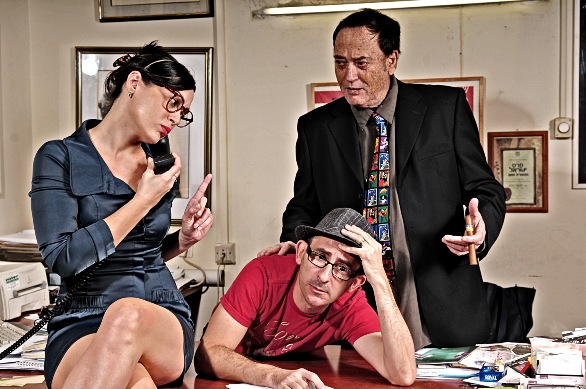15 minutes onstage; it’s not much, but it’s enough to work with. The Short Theatre Festival at Tzavta took place from December 26 – 29, 2012, featuring nine original plays, each 15 minutes long, in three programs, on the themes: time, home and war.
The short format has its constraints. Character cannot be developed over time, as the plot must move forward, and indeed, conclude, fairly quickly. Like a sketch, the lines of emotion and situation must be drawn with speed and assurance, even intensity, yet one may convey delicate nuances and shades of meaning with a few simple strokes of the pen. The time span invites speed and movement, and offers the audience a lively, diverse evening.
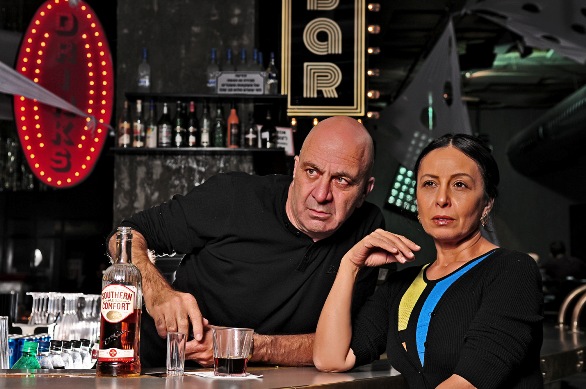
Six, by Yoav Hyman, directed by Muli Shulman, was mesmerizing and magical. Inspired by Gabriel Garcia Marquez’s short story The Woman Who Came at Six O’Clock, form and content enhance one another as these 15 minutes were not only the length of the play, but a crucial element in the plot. Opening in the dark on a spare yet precise set, the bartender (Arie Tcherner) wields his broom on the floor, then, with a snap of his fingers, a smile lights up his eyes, the bar lights come on, illuminating the moment with mystery, and a sense of the possible. Enter the “Queen” (Evelyn Hagoel) – a disheveled damsel in need of something more than the usual free steak she scores off the remains of her looks. Their casual conversation with its underlying sexual tension, references to a shared history, and the incessant whisper of something more is tight and tantalizing. Tcherner and Hagoel imbue these fifteen minutes with a lifetime of desire, despair and devotion, deftly traversing shifts in tone from light flirtation to serious implications, conveying a multitude of meanings in each word and gesture.

Housewarming, written by Itamar Sade, and directed by Dor Zweigenbaum, takes the familiar topic of immigrant refugees from the headlines into a more personal space, creating an encounter between property owner Afflalo (Yonatan Cherchi) and Eritrean squatter (Hava Tizazo). Afflalo is drawn in very broad humorous strokes and well played by Cherchi. I was somewhat troubled by the clichéd characterization of Israelis of Middle Eastern ethnicity, the person (of Middle Eastern ethnicity) in the seat beside me, was not. Hava Tizazo gives this play depth and emotional impact in her memorable portayal of a woman who survives crushing circumstances yet remains vital and strong, even as she endures suffering and indignity.
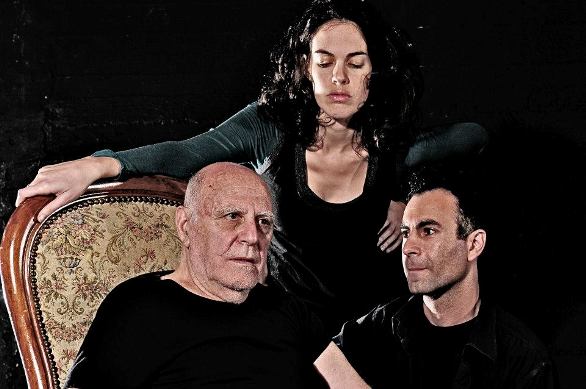
Eli Haviv’s Otiyot Ktanot (Small Print) speculated on the not-too-distant future, invoking laughter and horror in equal parts, with good performances by Eli Haviv, Nili Rogel, and Hezi Tzadik as the elderly resident who is not particularly eager to go gentle, even at the sweet urgings of the young expectant couple who appear at his door with a slice of wedding cake, topped by the traditional plastic bride and groom. Ever searched for an apartment in Tel Aviv or New York, clung to a rent-stabilized closet from beyond the grave (or wished you could), or read Vonnegut’s “Tomorrow and Tomorrow and Tomorrow” (Welcome to the Monkey House)? This witty piece offers delectable entertainment and food for thought.
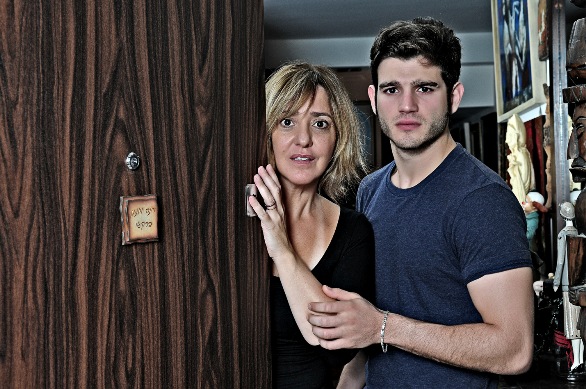
It is not wedding cake, but pear-almond pie that is to be served to a very special guest in Tal Alkalay’s Oh, Oh! Who is Coming? The guest in question is none other than the Prime Minister, who will come to extend his condolences to a bereaved mother (Sandra Shonwald), and her remaining son (Maor Shvitzer). What is the appropriate dish to serve on such an occasion? Sandra Shonwald elicits empathy with her intelligent and sensitive portrayal of a woman forced to contend with a painful situation.
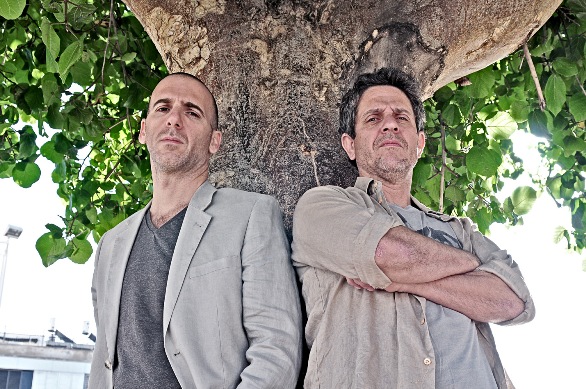
The delicate play of intrigue underlying Yoav Bar Lev’s rather submissive suffering at the hands of his aggressive neighbor led to an amusing self-referential denouement in It’s Not the Same Shade. The theme of writing was taken up on a zanier note in The Biggest Theatrical Piece in the 21st Century by Tal Zagreba, with Eli Galperin, Rotem Nir, and Shmulik Kalderon all as the many manifestations of the prolific mind of Tal Zagreba – and featuring a fun color concept and set design for this playful metaphor.
